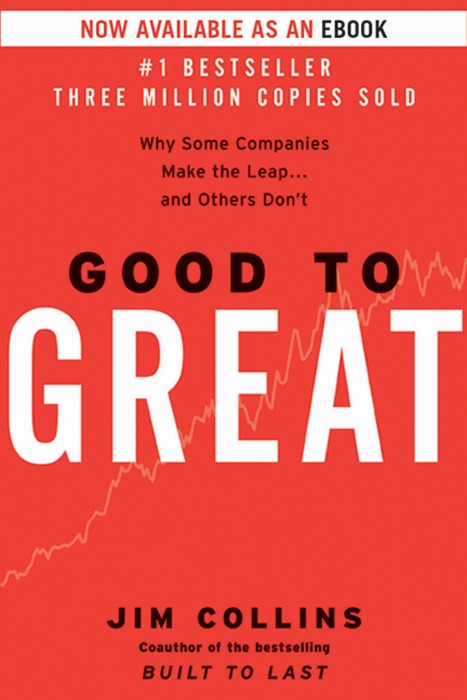# Good to Great

## Metadata
- Author: [[Jim Collins]]
- Full Title: Good to Great
- Category: #books
## Highlights
- It is about the question–Can a good company become a great company and, if so, how?—and our search for timeless, universal answers that can be applied by any organization.
- Tags: [[blue]]
- There is nothing I find more exciting than picking a question that I don’t know the answer to and embarking on a quest for answers.
- “We don’t know what we’ll find when we get there, but we’ll be sure to let you know when we get back.”
- It is possible to turn good into great in the most unlikely of situations
- process.
- Tags: [[blue]]
- Ten of eleven good-to-great CEOs came from inside the company
- The idea that the structure of executive compensation is a key driver in corporate performance is simply not supported by the data.
- there is no evidence that the good-to-great companies spent more time on long-range strategic planning than the comparison companies
- The good-to-great companies did not focus principally on what to do to become great; they focused equally on what not to do and what to stop doing.
- Technology can accelerate a transformation, but technology cannot cause a transformation.
- Under the right conditions, the problems of commitment, alignment, motivation, and change largely melt away.
- Tags: [[blue]]
- Note: This is related to the black box diagram
- Greatness is not a function of circumstance. Greatness, it turns out, is largely a matter of conscious choice.
- the good-to-great leaders seem to have come from Mars. Self-effacing, quiet, reserved, even shy—these leaders are a paradoxical blend of personal humility and professional will.
- that they first got the right people on the bus, the wrong people off the bus, and the right people in the right seats—and then they figured out where to drive it.
- People are not your most important asset. The right people are.
- You must maintain unwavering faith that you can and will prevail in the end, regardless of the difficulties, AND at the same time have the discipline to confront the most brutal facts of your current reality, whatever they might be.
- if you cannot be the best in the world at your core business, then your core business absolutely cannot form the basis of a great company.
- When you have disciplined people, you don’t need hierarchy.
- When you have disciplined action, you don’t need excessive controls.
- The Flywheel and the Doom Loop. Those who launch revolutions, dramatic change programs, and wrenching restructurings will almost certainly fail to make the leap from good to great. No matter how dramatic the end result, the good-to-great transformations never happened in one fell swoop. There was no single defining action, no grand program, no one killer innovation, no solitary lucky break, no miracle moment. Rather, the process resembled relentlessly pushing a giant heavy flywheel in one direction, turn upon turn, building momentum until a point of breakthrough, and beyond.
- Tags: [[blue]]
- Note: Asked to be highlighted by Harsh Jajoo
- I like to think of our work as a search for timeless principles—the enduring physics of great organizations—that will remain true and relevant no matter how the world changes around us.
- Tags: [[blue]]
- That good is the enemy of great is not just a business problem. It is a human problem.
- Tags: [[blue]]
- “The best students are those who never quite believe their professors.”
- “One ought not to reject the data merely because one does not like what the data implies.”
- You can accomplish anything in life, provided that you do not mind who gets the credit